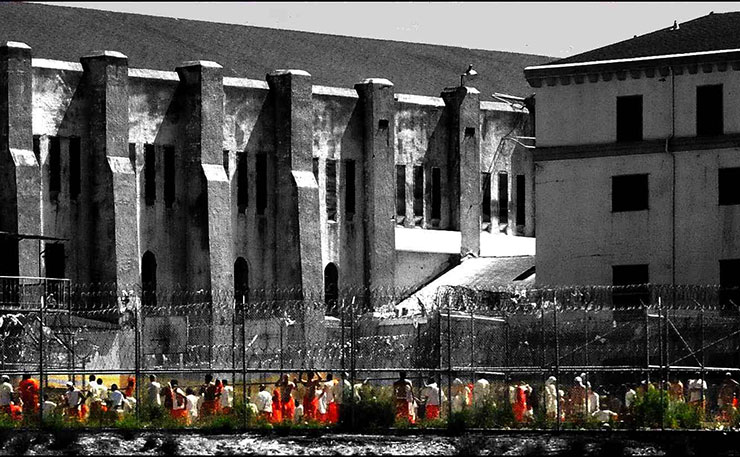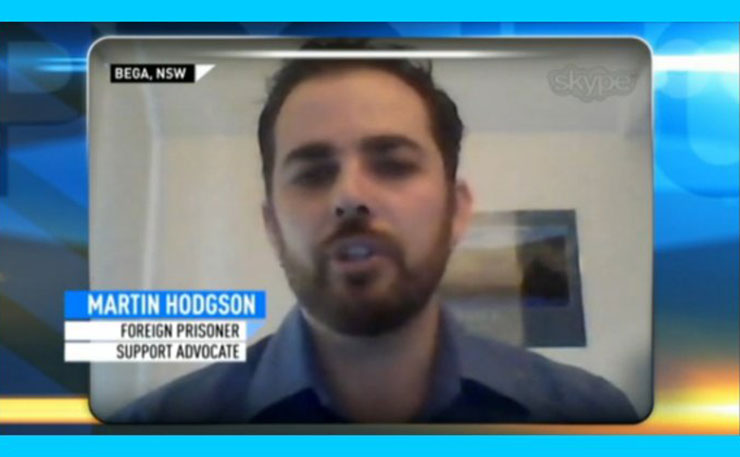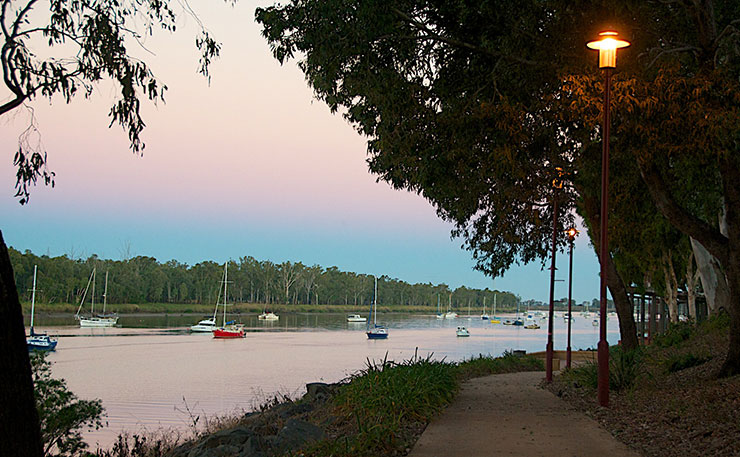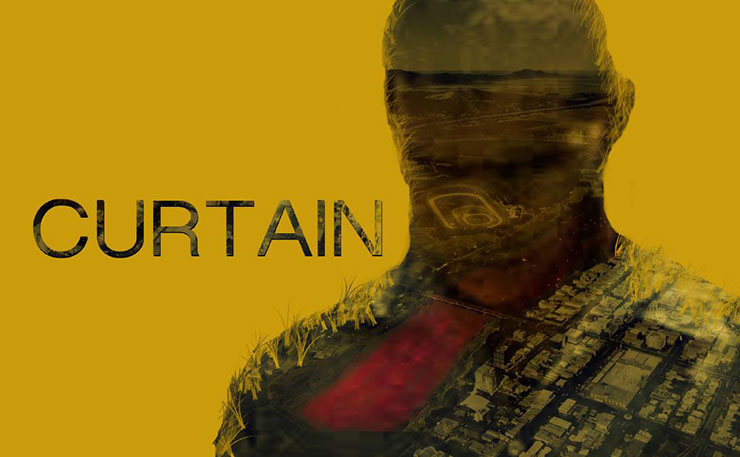Amy McQuire has been investigating the jailing of an Aboriginal man in Queensland for over a year. Here she details at the case, and the broader reality of wrongful convictions in Australia.
In 1991, an Aboriginal woman named Lynda tragically lost her life on the banks of the Fitzroy River in Rockhampton, Central Queensland. She as found by a fisherman, early on a Sunday morning. A police investigation was immediately called into her death, and the next year, four people were convicted in relation to her death.
While news of her death originally made the front pages of the local paper, by the time the trial rolled around the next year, the story was consigned to the middle sections. Now, 25 years on, few remember her name or the specifics of her death.
But there are reasons we must remember, because for the past quarter of a century, rumours of a grave miscarriage of justice perpetrated against Lynda have persisted.
It revolves around the person who received a life sentence for her death – an Aboriginal man by the name of Kevin Henry, or as he is more widely known, ‘Curtain’. Kevin Henry was picked up by police and charged with Lynda’s death within the same week she was found.
Curtain has always maintained his innocence but his pleas have fell on deaf ears. For Aboriginal people who already have the justice system stacked against them, the avenues to protest a guilty verdict are limited, and it is unlikely you will be believed.
Wrongful convictions in Australia are relatively rare, especially when compared to countries like the United States. In 2015, a new record was set in the US, according to the University of Michigan Law School, which counted 149 exonerations in that year alone.

A large proportion of these people had actually plead guilty even though they were innocent, 27 of them had given false confessions, 75 per cent of homicide cases reported official misconduct, and in 75 of the cases, there had been no actual crime committed.
There have been high profile cases of wrongful conviction in Australia – like Andrew Mallard in Perth, and more recently, Henry Keogh in South Australia, who was exonerated after it was found flawed forensic evidence was presented at his trial.
But these cases are seen as exceptions, rather than a symptom of the deep-rooted flaws within our own legal system.
However, if these two white men could be wrongfully convicted, what does that say about how that same justice system treats the most vulnerable in our society – Aboriginal men, women and children?
We already know that since the Royal Commission into Aboriginal Deaths in Custody, black jailing rates have gone up exponentially. In fact, the RCIADIC was handed down the same year Lynda was murdered. Her own younger brother was one of the high profile cases of that commission, and there was never any justice over his death, which was violent, and sadly mirrors a recent death in custody down in Sydney.
So while Australians like to binge-watch documentaries like ‘Making a Murderer’, which hinted at police collusion, corruption and inadequate legal representation to build a case that Steven Avery and his nephew Brendan Dassey were wrongfully convicted over the horrendous murder of Teresa Halbach, we do this with the luxury of distance, which cushions our complicity and blinds us to the realities of our own justice system.
The possibility of a miscarriage of justice over Lynda’s death was what drove me to tell the Foreign Prisoners Support Service’s Martin Hodgson about her case. He immediately began looking into it.

Martin has been working to provide assistance for Australians locked up overseas for more than a decade. His high profile clients have included David Hicks, locked up without trial in Guantanamo Bay, and the Australian journalist Peter Greste who was jailed in Egypt.
But he also works on cases for inmates on death row in the United States, and for about 10 years has been helping Rodney Reed in Texas, an African American man who maintains his innocence over the murder of his white lover.
For a very long time, Martin has toyed with the idea that these problems in the US justice system, which lead to wrongful convictions, could be a reality on our own shores. We certainly have the same problem with racism, which stacks the odds against a lot of Aboriginal people.
We also have similar barriers to good legal representation, and it’s becoming worse. With chronically underfunded Aboriginal Legal Service’s around the country often recommending clients plead guilty, you really have to wonder – how many Indigenous prisoners in Australia are innocent?
In fact, if you ask any blackfella, particularly in regional areas, about a case where an innocent Aboriginal person may have been locked up, they will often know of a cousin, or friend in the system, where the lines between truth and fiction have become blurred.
The problem is, no-one is looking, or has the time to look more deeply. But Martin had the tools, and the passion, and he definitely knows the questions to ask. And with this case, there were pressing questions that had to be answered.
Curtain wasn’t the only person convicted in relation to Lynda’s death.
Lynda had suffered an horrific assault at the hands of three women the night before she was found. That sustained assault had left her with extensive injuries across her body, including trauma to her brain which was so serious that it could have resulted in her death.
The three women – Susan Albury, Margaret Bob and Amy Saunders – were each given jail sentences, the harshest of which was only four years. They all were convicted on charges of grievous bodily harm.
Curtain was not involved in the assault. He was one of the witnesses to it, as were about 20 others. But he was the one who received the most serious charge – rape and murder, because police alleged that after the assault, he dragged Lynda into the river where she had drowned.
But the investigation by Martin Hodgson and myself, broadcast in the podcast ‘Curtain’, has found that not only was a confession given by Curtain most likely coerced, but that he was given no legal representation despite asking for it repeatedly.

In fact, the judge at Curtain’s trial threw out a large portion of this ‘confession’ because he found it had not been obtained voluntarily.
Our investigation has also uncovered Curtain had an alibi at the time he was alleged to have committed the crime.
Even more startling, the investigation found it was very unlikely Curtain had placed Lynda in the water.
Lynda was found two kilometres downstream on the opposite side of the river. Analysis of historic tidal records has shown that she would have had to have been placed on the north side of the river. Curtain had no car, and no time, to travel to the opposite side.
It means that there were likely other suspects, which police failed to follow up, even when provided with information about other alleged perpetrators.
It seems there was no reason other than they thought they had got their man, because after Curtain ‘confessed’ they closed the investigation, and all other lines of inquiry.
However, there is one fact that is even more startling.
There has never been any DNA or forensic evidence connecting Curtain to the crime. There are only discredited witness statements and that coerced confession, which was extracted without legal representation.
But it is not just the police investigation – there were also concerns about the court process, and the way the media reported sensationalistic, and false, testimony given on the stand by discredited witnesses.
If Kevin Henry, or Curtain, has spent 25 years in prison for a crime he didn’t commit, how many other Aboriginal prisoners in Australia are innocent?
*To listen to the full investigation please see curtainthepodcast.com.au
* To sign a petition for Kevin Henry aka ‘Curtain’ click here.
Donate To New Matilda
New Matilda is a small, independent media outlet. We survive through reader contributions, and never losing a lawsuit. If you got something from this article, giving something back helps us to continue speaking truth to power. Every little bit counts.





